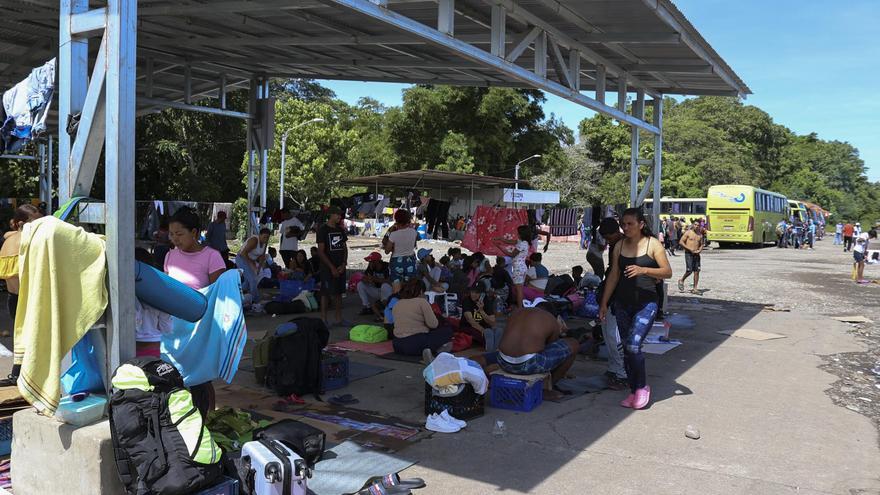
![]() 14ymedio, Madrid, 28 September 2023 — Costa Rican President Rodrigo Chaves declared a state of national emergency due to the high number of migrants passing through the Central American nation. “The number of people who arrive exceeds the institutional support available to serve them,” said Deputy Minister of the Presidency Jorge Rodríguez, at a press conference on Tuesday, together with Chaves, who announced the measure.
14ymedio, Madrid, 28 September 2023 — Costa Rican President Rodrigo Chaves declared a state of national emergency due to the high number of migrants passing through the Central American nation. “The number of people who arrive exceeds the institutional support available to serve them,” said Deputy Minister of the Presidency Jorge Rodríguez, at a press conference on Tuesday, together with Chaves, who announced the measure.
Rodríguez explained that so far in September more than 60,000 people have crossed through Paso Canoas, on the border with Panama, mostly Venezuelans, Cubans and Haitians. “All that this generates in terms of demand for services, waste disposal and mobility, is a huge pressure on the community,” he continued.
The Costa Rican authorities explain that the declaration of emergency, which provides the Government with special powers, will make it possible to provide resources to the affected communities, in addition to guaranteeing the migrants “safe transit.”
According to official data, from the beginning of the year until September 23, more than 390,000 migrants had crossed the dangerous Darién Jungle, which separates Colombia from Panama. This is the highest figure ever recorded and far exceeds the 248,000 people who crossed in 2022.
The president warned that he ordered the Ministry of Security “to take a firm stance against anyone who perceives the goodness of Costa Rica as a manifestation of weakness
The flow through Costa Rica, the next country after Panama traveling this route, has tripled in recent months, from 900 migrants per day in June to almost 2,700 in August.
When announcing the state of emergency, the Costa Rican president also warned that he ordered the Ministry of Security “to take a firm stance against anyone who perceives the goodness of Costa Rica as a manifestation of weakness” and that “deportation processes have already begun to return migrants.”
His Government made the decision a week after they arrested 25 migrants on the southern border, after a confrontation with police trying to avoid street sales in the area, which generated riots and controversy in the country.
The UN International Organization for Migration (IOM) reported on Wednesday an “unprecedented” increase in the transit of migrants through the region and called on the governments of Central America and Mexico to collaborate to address humanitarian needs.
Costa Rica experienced a similar moment of crisis in 2015, when thousands of Cubans were trapped on its northern border, in the face of Nicaragua’s refusal to let them pass. On that occasion, the Government of then-President Luis Guillermo Solís decided not to extend more transit visas to Cubans, due to the region’s refusal to seek a solution to the problem.
However, there have been several efforts of the Central American country in these years to deal with the passage of migrants on their way to the United States, such as making it easier for Cubans, Venezuelans and Nicaraguans to stay in the country with a special category of asylum.
Translated by Regina Anavy
____________
COLLABORATE WITH OUR WORK: The 14ymedio team is committed to practicing serious journalism that reflects Cuba’s reality in all its depth. Thank you for joining us on this long journey. We invite you to continue supporting us by becoming a member of 14ymedio now. Together we can continue transforming journalism in Cuba.
